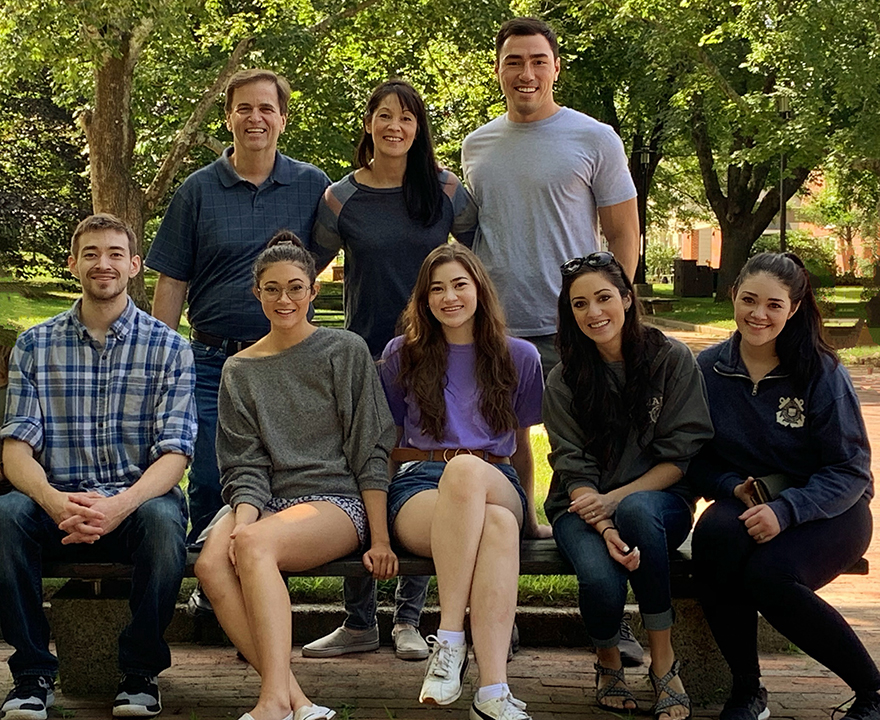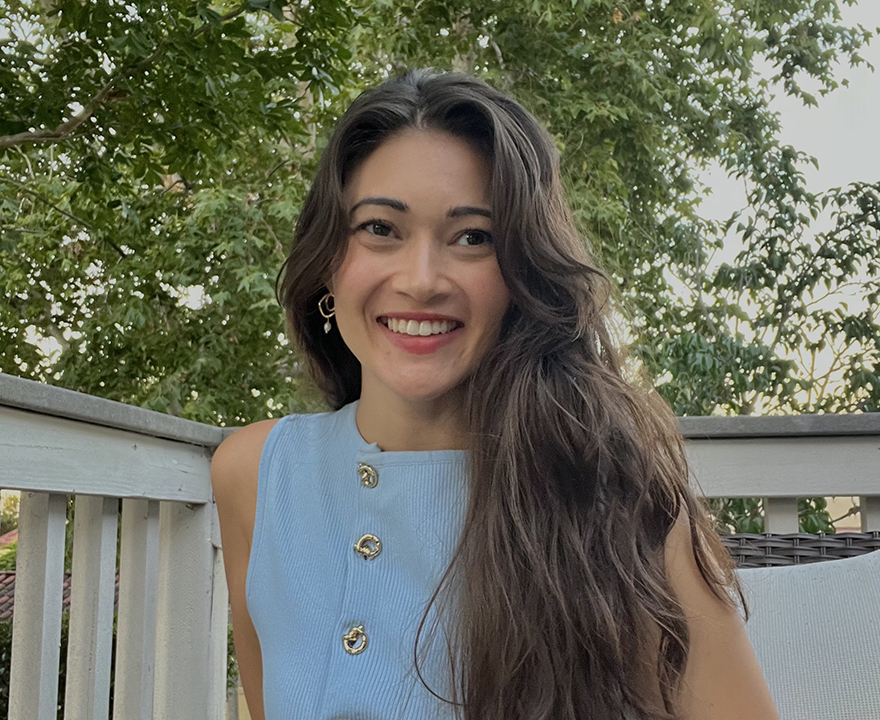Jill Kato – UC Irvine School of Social Sciences
When Kristen Kennefick’s father observed how much she loved learning, he noted that she would probably love being a student forever. Now that she’s about to begin her second year of a seven-year anthropology Ph.D. program, Kennefick laughs at how close that sentiment hits to home. But she wouldn’t have it any other way.
“I love learning so much that I want other people to have a positive experience with it too,” she says. “Students often come up with the most creative ideas because they haven’t absorbed all the boundaries yet. They’ll say something unexpected that makes you think differently.”
That openness is something Kennefick values deeply, and it has shaped both her academic work, and her vision of what education can be.
The road to Irvine
After completing her bachelor’s degree in anthropology at Colgate University in upstate New York, Kennefick took five years away from formal study for a period of reflection, growth, and exploration. She worked in her family’s seafood restaurant in coastal Massachusetts, taught high school Spanish during the height of the pandemic, and held positions in fields as varied as insurance auditing and student travel operations.
The decision to return to school came gradually. She knew she wanted to pursue graduate work, but only when she felt ready to take it on with focus and purpose. After completing a master’s program in social sciences at the University of Chicago, she spent two years working at Tufts University as a research coordinator in a community health lab, where she helped publish qualitative research in clinical journals.
“It was during that time I realized I wanted to be somewhere where I could keep asking questions and where teaching and learning were central,” she says.
That clarity led her to UC Irvine. While pursuing her master’s, she came across the work of anthropologists whose approaches challenged and inspired her. As she delved further into their research, she noticed a pattern: many had earned their doctorates at UC Irvine.
“I started looking into where they did their Ph.D.s, and it was UCI,” she says. As she learned more about the program, it began to feel like the right fit.
“I was really drawn to how the department approaches the field,” she says. “There’s this culture of academic flexibility. People are encouraged to follow ideas where they lead, even if that means changing directions.”
Ideas that matter
That freedom to explore has shaped Kennefick’s evolving research interests, which bridge medical anthropology, environmental health, and science and technology studies. She’s especially interested in how chronic illnesses develop in response to climate stress, and how certain diseases remain poorly understood—often because they affect populations that are marginalized. She also studies how diagnoses like ADHD are interpreted and reshaped by patients themselves, particularly in online communities where people share their lived experiences.
In both cases, what drives her is a desire to make knowledge legible—not only to scholars, but to clinicians, patients, and communities. Showing remarkable awareness for someone early in her career, she’s already thinking about how the impact of her research depends on how well it’s communicated.
“Research doesn’t do much good if it only circulates in academic journals. If we want it to matter, we have to find ways to reach people beyond the university,” she says.

A collaborative kind of learning
From the start, Kennefick felt UC Irvine offered the kind of intellectual environment she was looking for. But what she didn’t anticipate was just how meaningful the community itself would become.
“I don’t think, for the majority of people, that a Ph.D. is something that you can do alone,” she says. “Especially in anthropology, where so much of the research is individual, it really helps to have a group you can think with.”
She met two close peers from her cohort during the department’s admitted student visit weekend and remembers feeling immediate relief.
“I knew if they were going to be here, I would be happy,” she says.
Since then, their intellectual and emotional support has only deepened. They share frustrations, workshop ideas, and write together.
“We push each other, but it’s not competitive,” she says. “There’s a lot of mutual respect.”
That spirit of care also extends beyond her cohort. The year above hers made a concerted effort to build connections with the new students, modeling a kind of horizontal mentorship that Kennefick and her peers hope to continue.
“They made themselves so available,” she says. “They didn’t have to, but they did. And that meant a lot.”
Faculty, too, have been generous with their time and encouragement. One of her first-year professors, associate professor António Tomás, recalls Kennefick’s presence in the classroom vividly.
“Kristen was my best student in the class,” he says. “She is rigorous; she reads everything, and she engages with the readings with empathy and sensitivity. She wrote the best paper I’ve graded lately—she read beyond the syllabus and brought new perspectives to the course.”
“And she is a nice person to be around,” Tomás adds. “All her colleagues seem to like her and appreciate her. And she seems to care about them as well.”
That mutual care—for ideas, for students, for the community of scholarship—has become a defining part of Kennefick’s experience. In the end, it wasn’t just a love of learning that brought her here. For Kennefick, the real power of learning lies in what happens when people collaborate and grow together.


